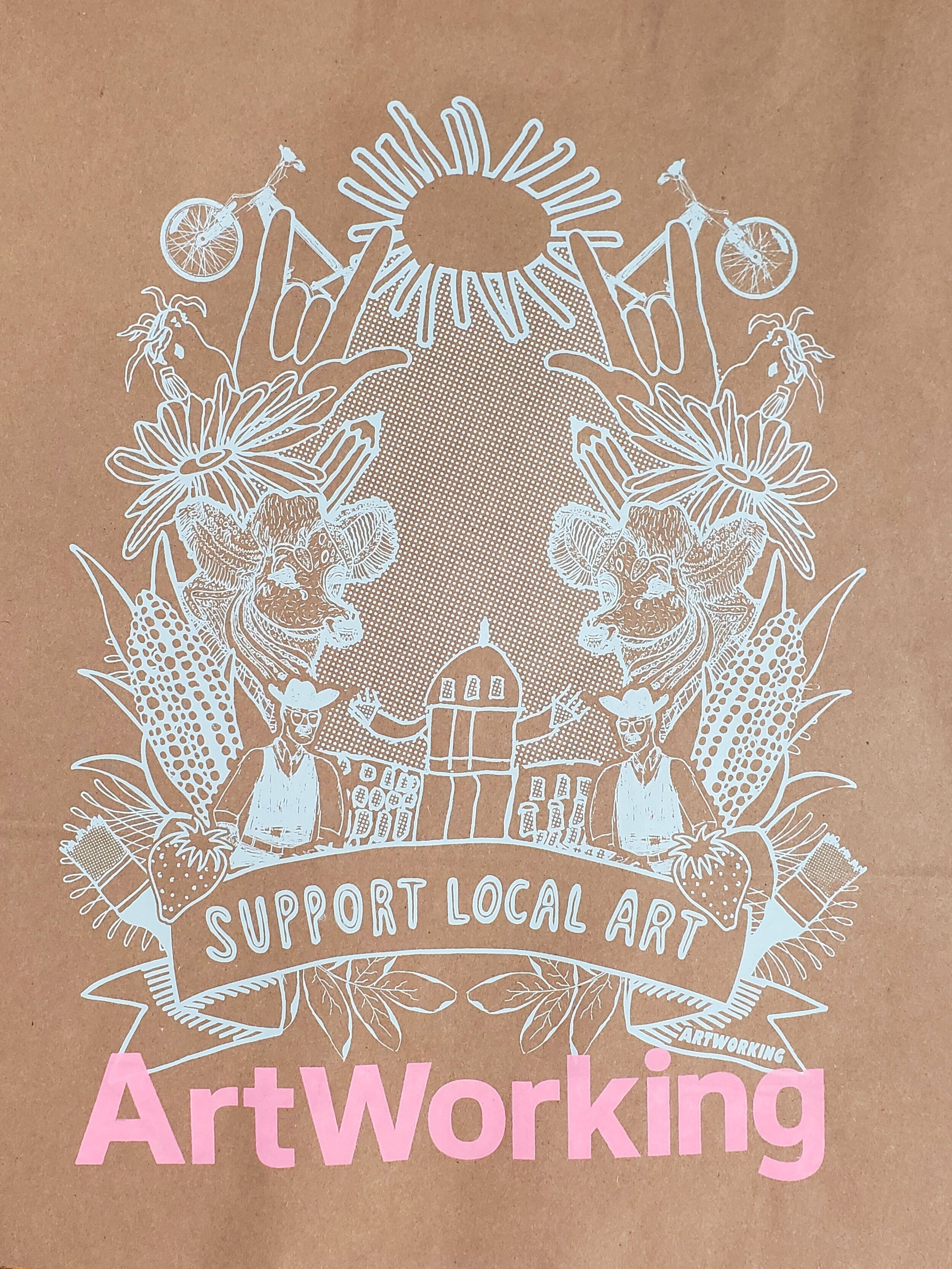Conduit: ArtWorking reckons with the pandemic
/ArtWorking is proud to have been a voice on Conduit, a livestream collaboration between Tone Madison, Communication, and UnderBelly.
Thanks for the conversation!
Photo: ArtWorking artists Romano Johnson, left, and Brianna Richardson. Photo by Lance Owens.
Below is an except from Scott Gordon’s article, published on Tone Madison, 13 April 2020.
Access the full article and audio here.
Conduit: ArtWorking reckons with the pandemic
ART, BUSINESS, CONDUIT, PODCAST, INTERVIEW, LISTEN
A conversation about the Madison non-profit's efforts to support artists with disabilities.
Madison non-profit ArtWorking plays a unique role in Madison's arts landscape, not only showcasing artists with disabilities but also helping those artists sell their work and build up small businesses. ArtWorking's 6,000-square-foot facility on South Stoughton Road encompasses studios with equipment for printmaking, ceramics, and woodworking, plus a retail storefront. All of that has been closed down since March 11, creating new challenges for the organization and the dozens of artists it supports.
ArtWorking Program Director Lance Owens and Assistant Director Laura Falkenberg joined us on the April 9 edition of Conduit, a livestream collaboration between Tone Madison, Communication, and UnderBelly. They talked about the organization's underlying philosophy and how the COVID-19 pandemic has disrupted their efforts. All of ArtWorking's staff has been temporarily laid off or furloughed to help preserve the funds the organization brings in from private sources and Medicaid. They're still working on supporting the artists when and how they can, and hope to have an online store set up soon.
The decision to close ArtWorking's physical space was particularly urgent because the organization supports so many people with underlying health conditions and compromised immune systems. By the same token, the kind of work ArtWorking does is at times impossible to do remotely. "Some people also have barriers to technology that are harder to overcome at this time," Falkenberg says. "They might not have a laptop or a phone or the ability to do this, or they may also be non-verbal... so much of what we do, we do subtly in a physical space together, and so that's really compromised by trying to ad hoc it in this way, though it's great to hear from people and great to see them when we can."
The emotional impact was obvious during our conversation. "I miss these people," Owens says.
Commissions and opportunities for ArtWorking's artists to sell their work have largely dried up over the past month, and some can't do their work without access to specific equipment and materials. But this also points to a strength of ArtWorking's philosophy—letting artists find their own way of doing things, and encouraging them to communicate about what they want and disagree with staff suggestions if it feels right.
"We do a lot of talking to each other and a lot of research on how to uphold the artist's vision first and foremost, before my vision or anyone's vision or the trend of the time," Falkenberg says.


